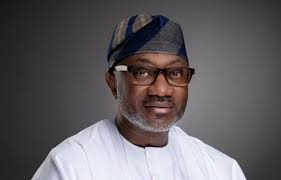Nigerian businessman, Femi Otedola, has strongly denied claims linking him to the controversial fuel subsidy fraud investigated under former President Goodluck Jonathan’s administration. He described the allegations made by Umar Sani, a former aide to Vice President Namadi Sambo, as baseless and malicious.
In a statement released at the weekend, Otedola said Sani’s remarks showed “gross ignorance” of Nigeria’s oil industry. The billionaire revealed that he had already instructed his lawyers to file a N1 billion libel suit against the former presidential aide for defamation of character.
Otedola, who was the founder of Zenon Petroleum and Gas Limited, explained that his company only dealt in diesel and never in petrol, also called Premium Motor Spirit (PMS). He stressed that diesel was deregulated at the time and therefore not covered by the Petroleum Subsidy Fund scheme. For that reason, he argued, it was impossible for his company to have accessed subsidy claims.
The businessman recalled that he was one of the first people to expose the fraudulent activities in the subsidy regime during the Jonathan years. He said he personally alerted then President Goodluck Jonathan and Senator Bukola Saraki, who later brought the issue before the Senate, sparking a wider investigation by the House of Representatives.
According to Otedola, it was illogical to accuse him of benefiting from a fraud he helped to expose. He added that some of those who looted public funds under the subsidy scheme later tried to fight back by sponsoring false stories against him.
He reminded Nigerians of the sting operation involving former House of Representatives member, Farouk Lawan. At the height of the subsidy probe, Lawan was caught on camera receiving marked dollar bills provided by the Department of State Security (DSS). Otedola said this incident was part of an anti-corruption operation, and Lawan was later convicted and sentenced to prison. He dismissed Sani’s suggestion that the episode indicted him.
The billionaire also addressed insinuations about his financial troubles during the 2008 global economic crisis. He confirmed that his loans were taken over by the Asset Management Corporation of Nigeria (AMCON) after he suffered heavy business losses. Otedola stated that he willingly gave up assets worth hundreds of billions of naira to settle his debt obligations, a move that AMCON itself publicly praised. He argued that only mischief could explain why Sani would twist publicly available records to portray him negatively.
The businessman appealed to President Bola Ahmed Tinubu to release the full report of the Aigboje Aig-Imoukhuede panel, which investigated the fuel subsidy regime under Jonathan’s government. He said Nigerians deserve to know the truth about those who actually looted billions of naira from the subsidy fund. He noted that at the time, the investigation was halted by the late EFCC chairman, Ibrahim Lamorde, on instructions from the Presidency.
Otedola further pointed to his recently published book, Making It Big, where he documented details of his business journey and the challenges he faced. He advised Sani and others spreading false stories to read the book and educate themselves on the facts before making public statements.
In his response, Umar Sani had alleged that Otedola controlled 90 per cent of diesel imports and about 40 per cent of other petroleum products during the peak of the subsidy era. He argued that Otedola benefitted massively from the same system he now criticises. But Otedola dismissed those claims as ignorant, noting again that diesel was not subsidised.
He insisted that his reputation, built over decades in business and philanthropy, must not be destroyed by propaganda. He vowed to pursue the N1 billion libel suit against Sani to its conclusion, not only to clear his name but also to serve as a warning to others who may want to distort facts for political or personal reasons.
The oil magnate concluded by saying that truth must prevail, and Nigerians should not allow history to be rewritten with lies. He called for transparency and accountability in government reports to ensure that those responsible for subsidy fraud are properly identified and held accountable.
